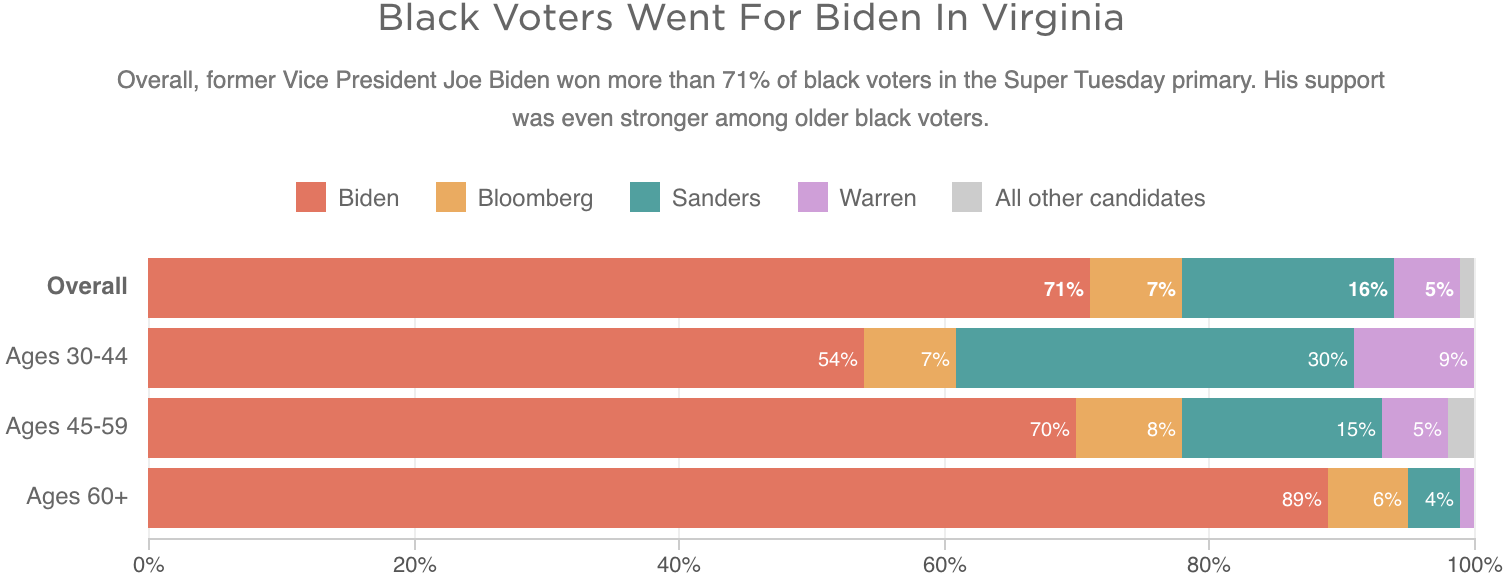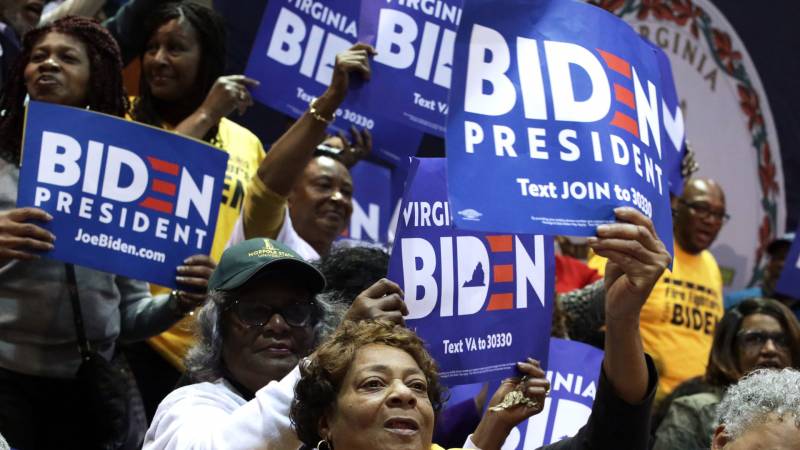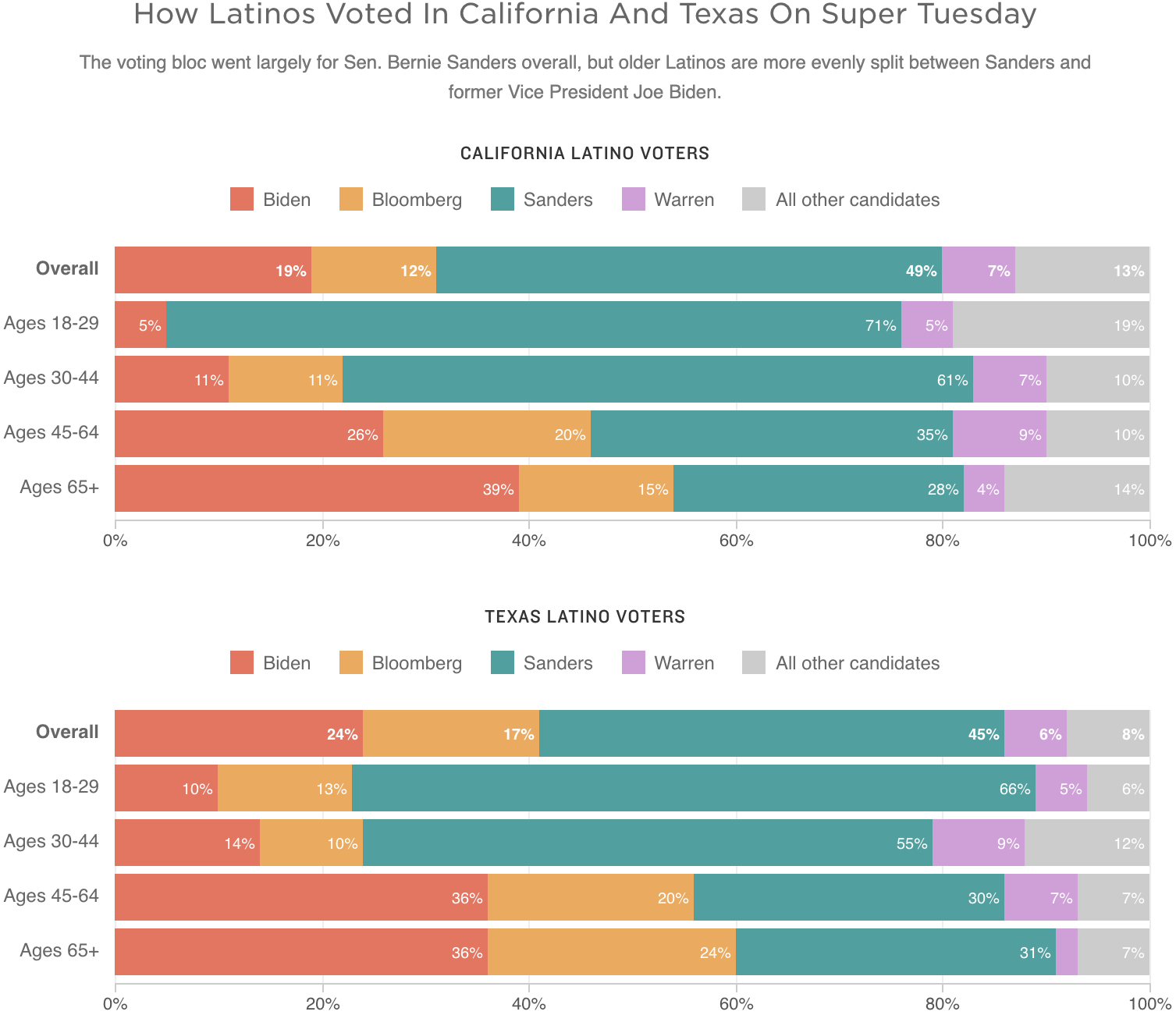Former Vice President Joe Biden went on a romp across the South on Tuesday, winning over several states with large majorities of African Americans. Vermont Sen. Bernie Sanders won the largest state on the Super Tuesday map, California, where Latinos make up about a third of the Democratic electorate.
All told, the 14 states that voted Tuesday offer the clearest distillation yet of the two distinct paths that Sanders and Biden would take to build a winning Democratic coalition to defeat President Trump in November.
Black Voters Propel Biden to Victory in Southern States
Biden picked up victories in four Southern states — Virginia, North Carolina, Tennessee and Alabama — largely due to his support among black voters.
In Alabama and Virginia, Biden had the support of about seven in 10 black voters. In Tennessee and North Carolina, Biden had the support of more than half of black voters.

Biden also outperformed Sanders with black voters in Texas, where they make up about one-fifth of the Democratic primary electorate. Exit polls show Biden had the support of roughly 60% of black voters in the state; Sanders had 17%.


